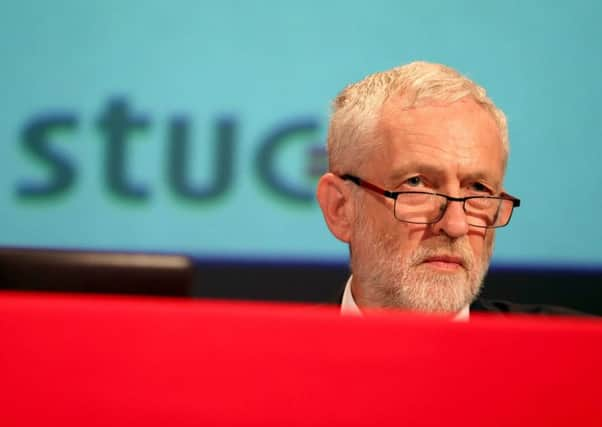Jeremy Corbyn refuses to answer questions from media


The Islington North MP has been under pressure after indicating he may scrap the UK’s Clyde-based nuclear deterrent if he wins the election and was lukewarm about authorising a military strike against the leader of Isis.
Mr Corbyn was met by waiting journalists as he left the Macdonald resort conference centre in Aviemore. Labour activists stationed in front of the waiting media began loudly clapping and marched Mr Corbyn to the door as he faced questions on his way out.
Advertisement
Hide AdAdvertisement
Hide Ad“Lovely to see you, thanks for coming,” was all Mr Corbyn said as he was rushed into a snowstorm outside where his mini-van was waiting to take him off to a rally later tonight in Dunfermline with Scottish Labour leader Kezia Dugdale.
The UK Labour leader had spent 20 minutes addressing delegates in the hall, but did not cover the issue of Trident.
When asked about the future of the nuclear deterrent in an interview yesterday, Mr Corbyn, a life-long anti-nuclear campaigner said he would be ordering a strategic review of all “all aspects” of the UK’s defences if he becomes Prime Minister.
But Labour’s shadow defence secretary Nia Griffith today said she had made it clear to Mr Corbyn that the party supported the nuclear deterrent.
“It absolutely will be in the manifesto because it’s firmly our policy, and that’s been reaffirmed time after time,” she told BBC Two’s Daily Politics.
The UK Labour leader has previously indicated that he would not authorise a nuclear strike. Challenged on Mr Corbyn’s position on this, Ms Griffith said it was “very important that we are absolutely clear that we are prepared to use it”.
She said the option of force and the “ultimate deterrent” meant “you are far more likely to actually sustain peace and security at the end of the day”.